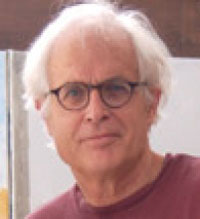
By Winslow Myers
Putin is threatening Ukraine with battlefield nuclear weapons. Arms control agreements are in the toilet. Many if not all of the nine nuclear powers are renewing their nuclear arsenal. None of them is willing to sign the United Nations Treaty on the Prohibition of Nuclear Weapons.
The Union of Concerned Scientists has moved the Doomsday Clock closer to midnight than ever before. And yet it’s as if most of us were in a trance, hypnotized into passivity by the planetary challenge of how to move beyond the nuclear conundrum.
From a lay point of view, a policy like launch-on-warning appears insanely self-defeating. But in the halls of power, where doubts are suppressed to avoid being perceived as weak or disloyal, a dangerous status quo continues, as if no alternative were possible. Sometimes silence speaks volumes. Only after admirals, generals and even statesmen like Henry Kissinger retire do we hear misgivings.
Imagine what a U.S. president might say to the nation if he or she were willing to break ironclad political taboos and admit some self-evident truths . . .
My Fellow Americans:
There are some issues that are so complex that experts are needed to find the safest way forward. One of these is nuclear weapons policy. But we are a democracy, where the peoples’ will prevails. Our country has never had a national discussion in real depth about nuclear issues. It is time to begin one.
The nuclear age brought a fundamental contradiction into our lives: we are ultimately relying for our security on weapons which could end life on our planet as we know it. The leaders of all the nuclear nations would have only minutes to decide how to respond to a nuclear attack. God keep any of them, including me, from having to experience such a moment.
This cannot be a partisan issue. As Ronald Reagan said in 1982: “ . . .a nuclear war cannot be won and must never be fought.”
The deterrence system encourages non-nuclear nations like Iran to want the weapons, and discourages the nuclear nations from being able to afford to give them up. Meanwhile the arms race accelerates in an endless cycle moving in a hair-trigger direction. While no one is prouder than I am of the professionalism of our military forces, systems made and administered by humans do fail. The space shuttle and nuclear power plant disasters, let alone when misinterpretations of early warning systems have almost led to the launch of weapons that could not be called back—we forget such realities at our ultimate peril.
Further, now we are aware that the detonation of only a few nuclear warheads, perhaps hundred or fewer, over cities, could lead to what scientists call nuclear winter, where soot rising high into the upper atmosphere could cause global cooling and even the radical diminishment of agriculture for a decade—an effect that obviously should concern not only us but all countries, nuclear or not.
The Russians, the Chinese, Iran and North Korea are all making aggressive moves—not an opportune time to bring up how we might reduce our dependence upon our nuclear arsenal. But they too want to survive. There is no good or bad time to have this discussion except before, not after, another Cuban Missile Crisis or worse.
Would it be easier or harder to alert ourselves to violations of weapons agreements were there fewer weapons? Should we seek new arms control agreements with our adversaries that could result in the reciprocal reductions of numbers of weapons? Should we invite the militaries of the nuclear nations to dialogue about launch on warning, mistakes, and nuclear winter? Should we make easily reversible gestures like bringing a few of our submarines into port, hoping that adversaries would send similar signals?
The community of nations faces the challenge not only of nuclear weapons but also of global sustainability: the transition out of not only nuclear weapons, but also fossil fuels. Nations have become so deeply interdependent economically and ecologically that no one country can be secure until all are. Can the world afford to continue to pour its resources into a nuclear deterrence system that diminishes funds needed to meet the global climate emergency? A system which, should it break down, would mean the end of everything we cherish? There will always be conflict, but the science of conflict resolution tells us that even mortal adversaries can cooperate if they work toward a shared goal—in this case, planetary survival.
I am committed to whatever policies make both the United States and the world safer. If there are fundamental changes to be made, I cannot execute policy without the advice and consent of the Congress and therefore, ultimately, of you. Experts may formulate policy, but broad citizen agreement is required for your representatives to continue to push whatever policy direction we choose beyond a single four-year administration.
To encourage a national dialogue on the role of nuclear weapons and their place in the context of the sustainability challenge, I will be sending teams of people all around our country who are equipped to listen and to encourage honest and civil conversation. I am calling it the National Nuclear Weapons Policy Dialogue. I’m certain it will result in a stronger, safer America.
God bless America and God bless our troops.
Winslow Myers, syndicated by PeaceVoice, is the author of “Living Beyond War: A Citizen’s Guide” and serves on the Advisory Board of the War Prevention Initiative


Be the first to comment